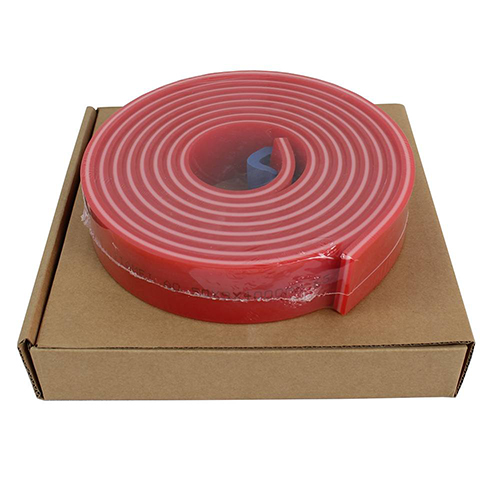Urethane Screen Printing Squeegee Blades are the foremost ordinarily utilised material used for squeegee applications. However, there ar 3 basic forms of materials used (Rubber, synthetic rubber and Polyurethane) utilised within the manufacture of Squeegees, polymer is that the most popular material for the look of squeegee meant for extended use and automatic/semi-automatic instrumentality.
Polyurethane is additionally the smallest amount costly of the 3 materials, however their resistance to each physical and chemical abrasion is additionally far and away additional superior than those of rubber and synthetic rubber. very little marvel the squeegees made from polymer ar the foremost known of all Squeegees. Our ester screen printing squeegee blades ar capable of excellently resisting high solvent and abrasion. These options modify them (the blades) to point out very little or no swelling throughout run and effectively maintain their durometer once utilized in aggressive solvents/inks like UV, Epoxy, Enamel, Vinyl etc.
While most inferior quality screen printing squeegee blades eventually expertise a decrease in durometer or swell because of their inability to resist aggressive solvents and abrasion against the stencil, our polymer screen printing squeegee blades don’t, and this can be because of their glorious chemical and abrasion resistance once subjected to harsh ink and solvents. Our ester screen printing squeegee blades ar obtainable in numerous configurations and style that may meet the applying of your screen printing necessities. There ar many sorts of molding choices whereas producing squeegee blades such as:
Open solid molding is that the simplest and commonest molding technique for thermosetting polyurethanes.
screen printing squeegee blades Advantages: Since pressures and temperatures within the molding method ar comparatively low (ambient pressure and temps below 250F), the molds ar more cost effective and may be made of a spread of materials together with polymer. Open solid molding ester elements is nice for elements with comparatively open tolerances on one surface. If tolerances ar tighter, a secondary finishing operation is associate choice.
Post time: Sep-19-2019


